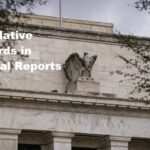Definition and Concept of Golden Visa Programs
Golden Visa Programs are special immigration programs offered by several countries with the aim of attracting foreign investors. Through this program, individuals can obtain a residence permit or citizenship in the country by investing in property or other financial tools. The term “Golden Visa” itself refers to the privilege granted by the host country to foreign investors to gain access to markets and broader social benefits. The history of Golden Visa Programs can be traced back to the 1980s, when several countries began launching special investment-based immigration programs. However, this concept became more popular and widespread at the beginning of the 21st century, when many countries in Europe deliberately adopted this scheme to support their economies that were hit by a financial crisis. Portugal, Spain, Malta, and Cyprus are some examples of countries known for their Golden Visa programs.
The main aim of implementing the Golden Visa Programs is to attract foreign investment while providing incentives to investors. In the short term, this program serves as a tool to increase income and help stabilize the country’s economy. Additionally, obtaining a golden visa also allows investors to access international markets and establish better business relationships within the region. In the long term, Golden Visa Programs also have the potential to have a positive social and cultural influence on the economy of the country of residence. Foreign investors who participate in this scheme generally bring varied capabilities, expertise and business experience that have the potential to contribute to developing existing sectors or creating new jobs. This program was created to meet needs in the world of global investment and increase a country’s attractiveness as a destination for high-class investors.
Types of Golden Visa Programs
The following are some of the most popular types of Golden Visa Programs. These types of programs vary greatly, from investment in real estate to job creation. One type of Golden Visa Program that is in great demand is investment in the property sector. This program allows foreign investors to buy property in the destination country and use it as access to obtain a residence permit or even citizenship. Some examples of countries that offer this kind of program are Portugal, Spain, and Greece. Each country has different investment requirements and conditions as well as the minimum investment amount to meet the criteria for this program.
Apart from that, there are also Golden Visa Programs which are directed at creating jobs. This program usually requires foreign investors to open a business or company in the destination country and generate a number of jobs for local residents. For example, the United States offers the EB-5 program which requires foreign investors to invest certain funds and create at least 10 new jobs for local residents. Another type of Golden Visa Programs is through investing in government bonds or shares. Countries such as Malta and Cyprus offer this program with the aim of raising funds for infrastructure development and government programs. In this case, foreign investors are required to invest funds in the form of government bonds or shares offered by the destination country. After fulfilling the specified investment requirements, investors will obtain a residence permit or citizenship in accordance with applicable regulations.
Golden Visa Programs General Process and Requirements
There are several investment requirements to consider before applying for the Golden Visa Programs, such as investments in real estate, bonds, or donations. Real estate investments involve purchasing property in the destination country, while bonds involve investing in government or corporate financial instruments. Some countries also accept financial donations as a form of investment for this program. Investing in real estate is generally a popular option in Golden Visa Programs because it gives investors the opportunity to own physical property and earn rental income. The minimum investment value for property varies between countries and is usually regulated by the government. Be sure to understand these requirements and contact a trusted real estate agent in your destination country before making a final decision.
Apart from investment requirements, the Golden Visa application process also involves additional requirements that must be met by prospective applicants. Some common requirements include a clean legal background, proof of good health, and sometimes local language skills. Prospective applicants must be able to prove that they have no criminal record and that they meet the health and immigration standards of the destination country. Language skills may be required in some countries, especially if you want to stay or gain full citizenship. The application process for Golden Visa Programs usually involves steps such as gathering relevant documents, submitting an application through a consulate or embassy, and attending an interview if necessary. Each country has unique procedures, so it is important for prospective applicants to know the requirements well in order to navigate the process successfully. Some countries also offer professional assistance to assist applicants in gathering the necessary documents and guide them through the application process.
Benefits and Potential Risks of Golden Visa Programs
One of the greatest benefits that can be gained by participating in this program is the ability to travel visa-free to a number of countries. This is very beneficial for entrepreneurs and investors who have to frequently travel between countries for business purposes. In addition, the Golden Visa program often allows these investors to apply for citizenship in the country receiving the investment in accordance with applicable regulations. Tax flexibility is also one of the main considerations for investors interested in the Golden Visa program. Often, through these investments, individuals can take advantage of various tax incentives or more favorable regulations in their destination country. There is potential to optimize wealth management and improve tax efficiency. However, it is important to consult with a tax expert or professional financial advisor before making any final decisions to consider specific and relevant tax implications.
However, there are some risks to consider before investing in the Golden Visa program. One of them is the risk of changes in government policies and laws in the countries that offer this program. Regulatory changes, possible repeal of tax incentives, or even sudden termination of the program could have negative impacts for investors in the long term. To anticipate this, it is a good idea to research the political and economic background of the country you want to go to before investing. In addition, investments in the Golden Visa program have the potential risk of fluctuations in investment value. Unstable market conditions, political changes, or even problems such as an economic crisis in a country can affect the value of the investment invested. Therefore, it is very important to conduct thorough due diligence and risk evaluation before entering this program. A good understanding of the property market or other investment instruments in the destination country will help investors make better decisions and manage risks related to fluctuations in investment value. In some cases, it may also be appropriate to consider diversifying investments across different countries or asset types to reduce the potential negative impact of changing market conditions.









